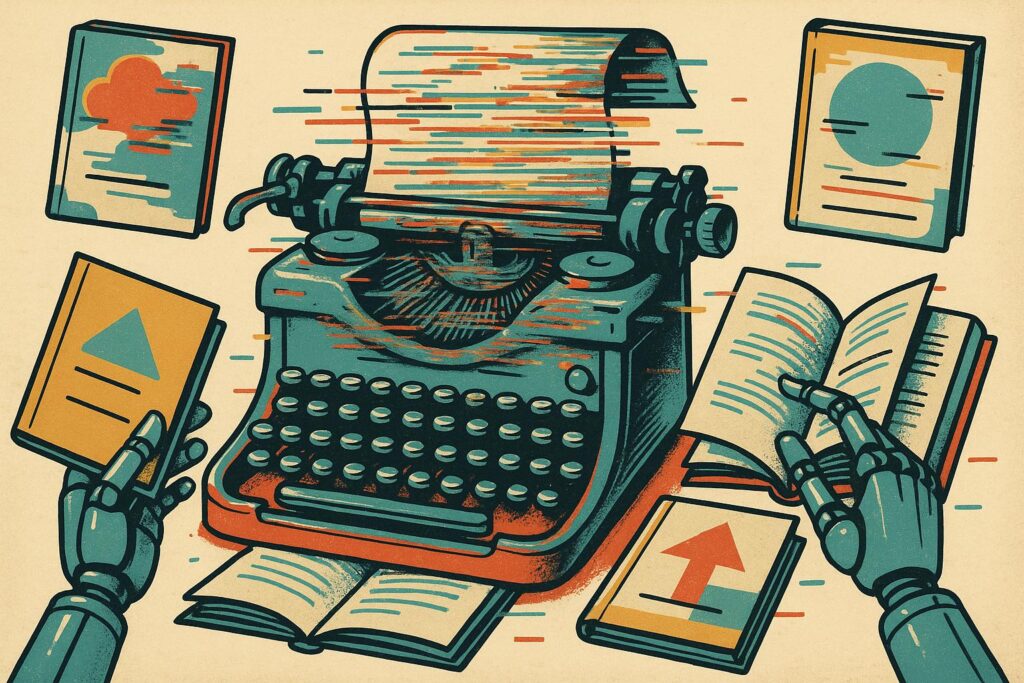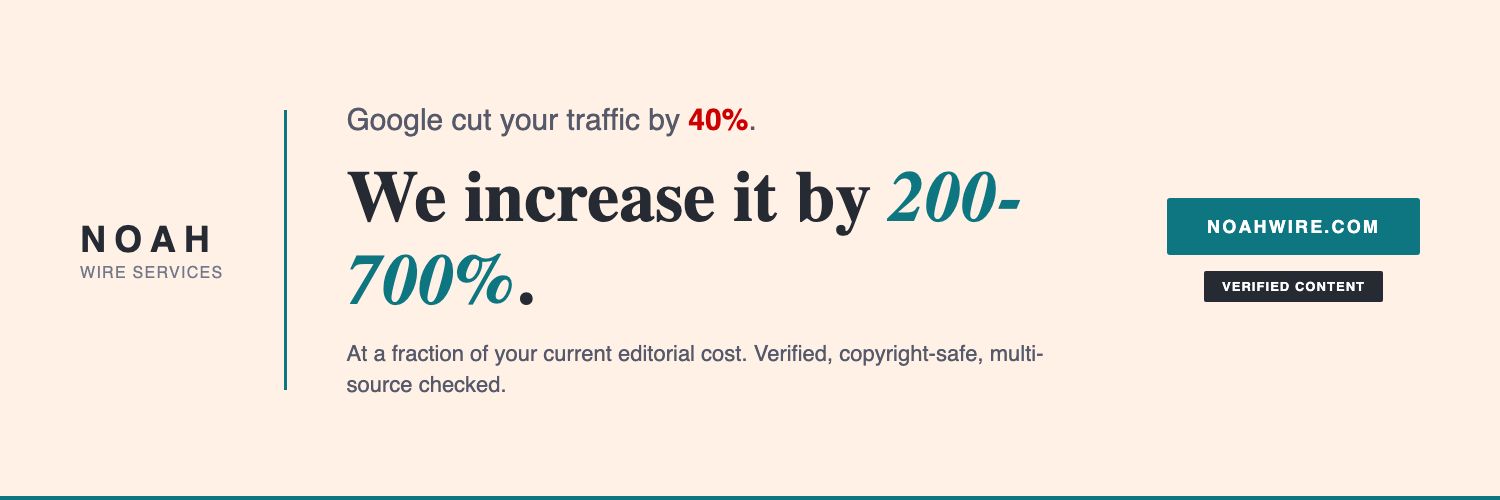The newspaper published a summer reading list containing fabricated book titles and incorrect author attributions created largely by AI.
The Chicago Sun-Times has faced criticism after publishing a summer reading list that included fabricated book titles and incorrect author attributions – most of them generated by artificial intelligence. The incident has renewed concerns about the unchecked use of AI in newsrooms and the risks it poses to journalistic credibility.
It was also a timely reminded that just like human journalists, AI needs the scrutiny of editors too.
The article, part of the paper’s Best of Summer series, ran under the headline “Summer Reading List for 2025” and was attributed to freelance writer Marco Buscaglia. It included imaginary books such as Tidewater by Isabel Allende and The Last Algorithm by Andy Weir. Several other books listed were also either fictional or wrongly attributed.
In a statement to 404 Media, Buscaglia admitted he had used AI tools to help compile the list and failed to fact-check the results. “I do use AI for background at times but always check out the material first. This time, I did not and I can’t believe I missed it because it’s so obvious. No excuses,” he said.
The controversy has highlighted growing public concern about “AI hallucinations” – plausible-sounding but entirely fabricated content produced by language models.
The backlash has prompted renewed calls for stronger editorial oversight and clearer labelling when AI is used in the reporting process. While many publishers are exploring how AI can enhance efficiency, experts warn that these tools must be used with caution, particularly when accuracy and trust are at stake.
Source: Noah Wire Services
- https://capitolfax.com/2025/05/20/sun-times-in-ai-flap/ – Please view link – unable to able to access data
- https://www.theatlantic.com/technology/archive/2025/05/ai-written-newspaper-chicago-sun-times/682861/?utm_source=apple_news – An article in The Atlantic discusses how the Chicago Sun-Times and The Philadelphia Inquirer published a ‘Heat Index’ feature containing AI-generated content with factual inaccuracies. The feature included fake book recommendations and misattributed quotes. Freelance writer Marco Buscaglia admitted to using ChatGPT without thoroughly verifying the results. The incident highlights challenges in journalism due to AI-generated misinformation and underscores the need for human oversight in content creation.
- https://www.axios.com/local/chicago/2025/05/20/sun-times-fake-book-list-ai-summer-heat-index-newspaper-journalism – Axios reports on the Chicago Sun-Times publishing a summer reading list featuring fictitious book titles attributed to real authors, including a fake novel by Isabel Allende titled ‘Tidewater Dreams.’ The content, partially generated by AI, was presented in a section labeled ‘Chicago Sun-Times – Heat Index’ without clarifying that it was licensed material. Freelance writer Marco Buscaglia admitted to using AI for the book list but failed to verify the output, raising concerns about AI-generated misinformation in journalism.
- https://www.axios.com/2025/05/20/ai-summer-reading-books-chicago-sun-times – Axios reports that a recent print supplement of the Chicago Sun-Times featured a ‘summer reading list for 2025’ that included multiple fictitious book titles allegedly authored by real, well-known writers. Many of these titles were likely generated by AI, sparking discussions on social media about the growing issue of AI hallucinations—where AI systems generate false or fabricated information. The first entry on the list, ‘Tidewater Dreams’ by Isabel Allende, is a fake title. The content appeared in an advertorial section titled ‘Heat Index – Your guide to the best of summer,’ though it resembled editorial content. Freelance writer Marco Buscaglia, who authored much of the 64-page supplement, admitted to using AI to compile the list without verifying the information. The incident underscores the critical need for human oversight and fact-checking when using AI-generated content, especially in journalism where accuracy is essential.
- https://www.axios.com/local/philadelphia/2025/05/20/philadelphia-inquirer-summer-reading-list-ai – Axios reports that the Philadelphia Inquirer recently published a ‘summer reading list for 2025’ that included several fictitious book titles attributed to real authors, generated partially through AI. This list, featured in a print supplement titled ‘Heat Index,’ also appeared in the Chicago Sun-Times, sparking criticism and concern on social media about the increasing role of AI in journalism and the erosion of credibility due to AI-generated misinformation. One notable example was a made-up novel by renowned author Isabel Allende titled ‘Tidewater Dreams.’ The article was written by freelance journalist Marco Buscaglia, who admitted to using AI to compile the list without verifying the information. The incident highlights ongoing challenges with AI fabrications and human oversight in content creation.
- https://en.wikipedia.org/wiki/Chicago_Sun-Times – The Wikipedia page for the Chicago Sun-Times provides an overview of the newspaper’s history, including the May 18, 2025 edition that gained attention online for a ‘Summer Reading list for 2025’ with AI-generated content that included nonexistent books and made-up quotes. The list was part of a 64-page ‘Best of Summer’ promotional insert written by Marco Buscaglia, who admitted to 404 Media that he used AI and did not fact-check the material. The insert included other AI-fabricated material and quotes. The content was licensed from King Media, a subsidiary of Hearst, and also appeared in the Philadelphia Inquirer.
- https://chicago.suntimes.com/columnists/2024/09/08/artificial-intelligence-ai-writing-editing-editors – An opinion piece in the Chicago Sun-Times discusses the role of artificial intelligence in writing and editing. The article emphasizes the importance of human judgment and expertise in conjunction with AI tools, suggesting that AI should be used as a tool, like spell-check, to improve writing. It also highlights the potential future of writing, where writers may focus more on editing AI-generated content rather than composing original work, and the need for editors to adapt to this new landscape.
Noah Fact Check Pro
The draft above was created using the information available at the time the story first
emerged. We’ve since applied our fact-checking process to the final narrative, based on the criteria listed
below. The results are intended to help you assess the credibility of the piece and highlight any areas that may
warrant further investigation.
Freshness check
Score:
9
Notes:
The narrative is recent and pertains to a specific event in May 2025, indicating a high level of freshness. The content is likely unique and not recycled from older articles.
Quotes check
Score:
8
Notes:
The quote from Marco Buscaglia appears to be original, as there is no earlier known reference online. However, without further context or direct access to the original communication, this cannot be fully verified.
Source reliability
Score:
6
Notes:
The narrative originates from Capitol Fax, which is not a well-known major publication. While it reports on political issues, its reliability is less established compared to major news outlets like the BBC or Reuters.
Plausability check
Score:
9
Notes:
The claims about AI-generated content and debates within the journalism industry are plausible and align with current discussions on AI ethics in media.
Overall assessment
Verdict (FAIL, OPEN, PASS): OPEN
Confidence (LOW, MEDIUM, HIGH): MEDIUM
Summary:
The narrative is fresh and pertains to a recent event, with plausible claims about AI use in journalism. However, the reliability of the source is moderate, and the quote’s originality is somewhat uncertain.








